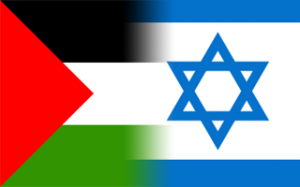Monday
Aug302010
Israel-Palestine Opinion: Hamas, Northern Ireland, and US Diplomacy (Abunimah)
 Monday, August 30, 2010 at 9:00
Monday, August 30, 2010 at 9:00  Abu Abunimah writes in The New York Times:
Abu Abunimah writes in The New York Times:George J. Mitchell, the United States Middle East envoy, tried to counter low expectations for renewed Israeli-Palestinian peace negotiations by harking back to his experience as a mediator in Northern Ireland.
At an Aug. 20 news conference with Secretary of State Hillary Rodham Clinton, announcing the talks that will begin this week, Mr. Mitchell reminded journalists that during difficult negotiations in Northern Ireland, “We had about 700 days of failure and one day of success” — the day in 1998 that the Belfast Agreement instituting power-sharing between pro-British unionists and Irish nationalists was signed.
Israel-Palestine: The Hamas Factor (Yenidunya)
Mr. Mitchell’s comparison is misleading at best. Success in the Irish talks was the result not just of determination and time, but also a very different United States approach to diplomacy.
The conflict in Northern Ireland had been intractable for decades. Unionists backed by the British government saw any political compromise with Irish nationalists as a danger, one that would lead to a united Ireland in which a Catholic majority would dominate minority Protestant unionists. The British government also refused to deal with the Irish nationalist party Sinn Fein, despite its significant electoral mandate, because of its close ties to the Irish Republican Army, which had carried out violent acts in the United Kingdom.
A parallel can be seen with the American refusal to speak to the Palestinian party Hamas, which decisively won elections in the West Bank and Gaza in 2006. Asked what role Hamas would have in the renewed talks, Mr. Mitchell answered with one word: “None.” No serious analyst believes that peace can be made between Palestinians and Israelis without Hamas on board, any more than could have been the case in Northern Ireland without Sinn Fein and the I.R.A.
The United States insists that Hamas meet strict preconditions before it can take part in negotiations: recognize Israel, renounce violence and abide by agreements previously signed between Israel and the Palestine Liberation Organization, of which Hamas is not a member. These demands are unworkable. Why should Hamas or any Palestinian accept Israel’s political demands, like recognition, when Israel refuses to recognize basic Palestinian demands like the right of return for refugees?...
Read full article....




